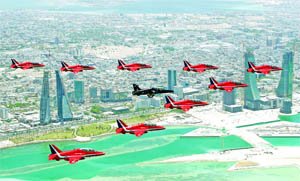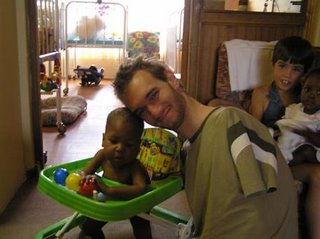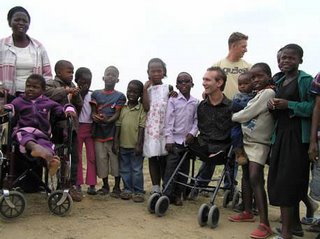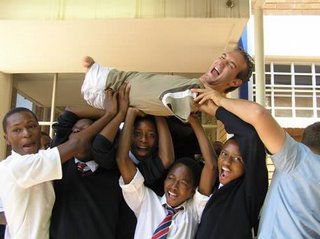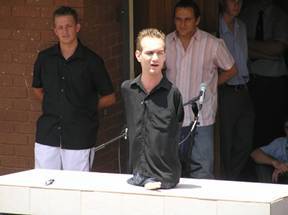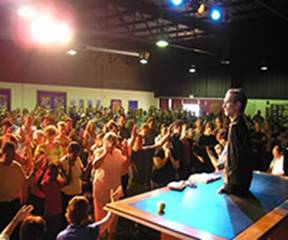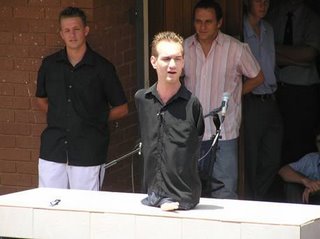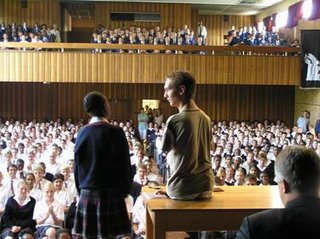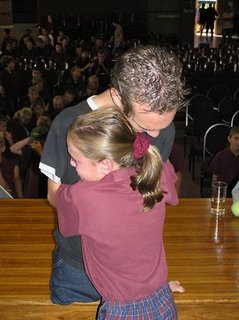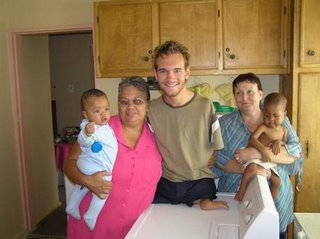An India Americans Seldom See
Economic growth isn't doing much to help average Indians. Economic equality could. So suggests the past quarter century of history in Kerala, India's most equal state.
Indian Finance Minister Palaniappan Chidambaram says the new budget he unveiled last week will help fix all this, by promoting economic growth. “I believe that growth is the best antidote to poverty,"the Harvard-trained Chidambaram proclaimed.
But economic growth, counters Delhi University political scientist Neera Chandhoke, ''does not necessarily lead to social development." What does?
The experience of one state within India suggests an answer. That state, Kerala, has conquered disease and poverty — and illiteracy and discrimination against women and girls — better than any state in India. And the secret to Kerala's success? Equality. Kerala has done more to share income and wealth fairly and widely than any other state within India.
Kerala, by every conventional measure of economic growth, rates as a poor place. Until recently, Keralans averaged less gross domestic product per person than the Indian average. The comforts conventional economic growth delivers — cars, air conditioners, washing machines — grace only a small percentage of Keralan households.
But on the only measure that “ultimately matters” — “the nature of the lives people can or cannot lead,” a formulation introduced by Nobel Prize-winning economist Amartya Sen — Keralans have created a society that outperforms much of the rest of the world. People in Kerala lead lives that are long and healthy, in vital, safe, tolerant communities.
The numbers document Kerala’s achievement. Morocco, a nation about equal to Kerala in population, generates about three times more wealth per person than Kerala. But people in Kerala, on average, live ten years longer than Moroccans. Colombia, another similarly sized nation, generates four times Kerala’s wealth. But babies die in Kerala at less than half the rate they die in Colombia.
Kerala and California also carry about the same population. California, of course, overwhelms Kerala economically. California generates seventy-three times more growth per person than Kerala’s. But Kerala, not California, enjoys more social peace. In the 1990s, about two hundred thousand inmates packed California’s jails and prisons. The number of full-time prisoners in Kerala: five thousand.
Within India, Kerala boasts the lowest rates of malaria and cholera and the highest rates of access to doctors, nurses, health clinics, and hospitals. Within the world, Kerala boasts a literacy rate that tops the average of all other low-income nations — by an amazing 40 percent.
And the literate in Kerala, unlike most of the rest of the low-income world, include girls as well as boys. In 1994, 93 percent of high school-age girls in Kerala were enrolled in high school, more than three times the rate in the rest of India and the world’s poor nations.
The people of Kerala owe their good fortune, their outstanding quality of life, partly to the accidents of geography. On the west, Kerala stretches along the Indian Ocean. This long coastline has always left Kerala open to new ideas from abroad, everything from Christianity to communism.
Meanwhile, on the east, mountain ranges have kept Kerala somewhat separate from the rest of the South Asian subcontinent. These mountains, together with the sea, helped create a land where divergent peoples — Hindus, Christians, Muslims, and Jews — have lived side by side, in tolerance, for generations.
In this heady atmosphere, intolerance — and exploitation — would not go unchallenged. In the nineteenth century, Kerala saw massive protests against the indignities of India’s caste system, an outrageously rigid hierarchy that subjected people in the “lower orders” to life-long humiliation.
In the 1930s, inspired by the teachings of Mahatma Gandhi, small but significant numbers of Kerala’s wealthy Brahmins, all born at the opposite end of the caste hierarchy, began “renouncing their privileges and giving up their lands.”
About the same time, all across Kerala, grassroot networks of landless tenants were organizing for thorough-going land reform. They would later elect, in 1957, India’s first communist-led state government, and this new government would quickly enact sweeping land reform legislation.
But the legislation would not go into effect. India’s central government promptly dismissed the ministers who would have been responsible for its implementation. Kerala’s peasant associations would not be intimidated. They kept up the pressure, and comprehensive land reform would finally come about, fourteen years later, in 1971. The reform would give about 1.5 million former tenant families title to their first property.
Over the next two decades, under steady pressure from peasant groups and trade unions, elected governments in Kerala, communist and noncommunist alike, would enact still more wealth-redistributing reforms.
Kerala’s minimum wage became India’s highest. Stiff tax rates on the wealthy, meanwhile, helped underwrite the free and low-cost distribution of basic services. Keralans, by the 1990s, were paying no charge for a minimal level of electrical power. In state-supported stores, Keralans could buy everything from rice to batteries at subsidized prices.
All these reforms, notes environmental author Bill McKibben, helped create “a state with some of the most equal wealth distribution on Earth.” (Read this in tune with this)That suited average families in Kerala quite nicely. But outsiders, particularly outsiders with power and wealth, considered Kerala hostile territory.
Industrialists avoided Kerala. They were not about to situate manufacturing plants in a state where wage rates ran three times the Indian average. Kerala, as a result, would not — could not — “grow” in standard economic terms. Without capital to fund ambitious “growth” projects, no giant manufacturing plants would soar above Kerala’s tropical forests.
Joblessness, on the other hand, would rise, to levels that topped the average unemployment rates elsewhere in India. But Kerala did not crumble, as conventional growth economics would have predicted. Kerala, instead, developed. Kerala’s left leaders may “have failed to spur economic growth,” as a 1998 Atlantic Monthly analysis would observe, but “they have been singularly successful at implementing development through redistribution.”
Indeed, between 1973-74 and century's end, only three states in India registered significant decreases in the percentage of their people living in poverty. Kerala led the way, with a poverty rate plunge from 60 percent in the early 1970s to 13 percent by the year 2000. Over those years, poverty rates in Kerala fell over twice as fast as poverty rates in India overall.
So which way for India in the future? India — and the world — might want to study Kerala's recent past.
------------------------------------------------------------------------------
i read this in a website... i forgot the link..... worth posting i think
------------------------------------------------------------------------------
